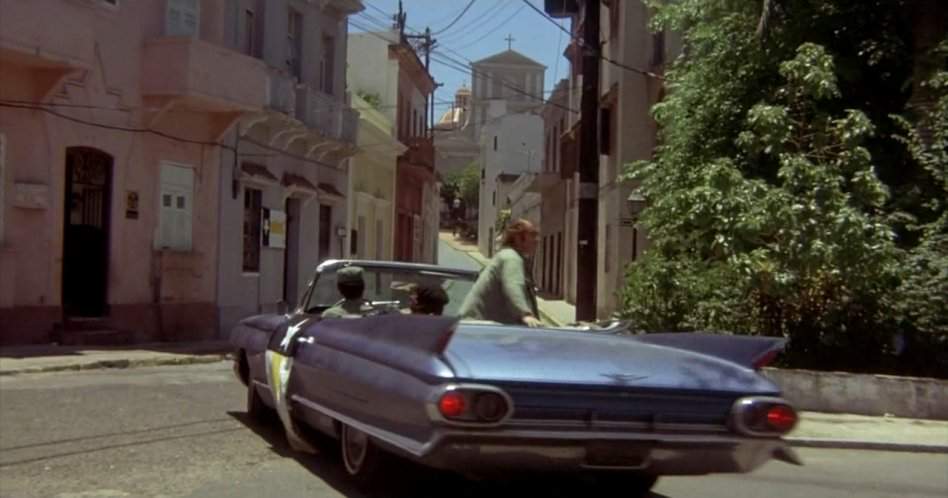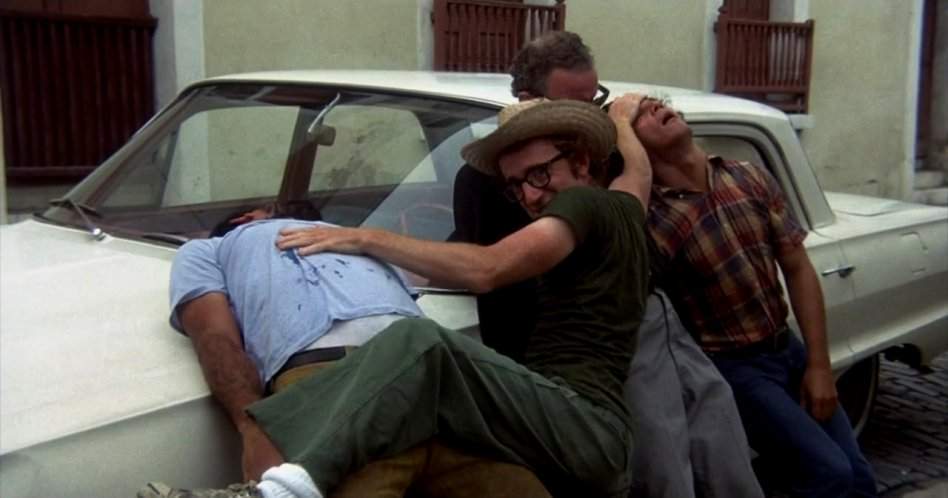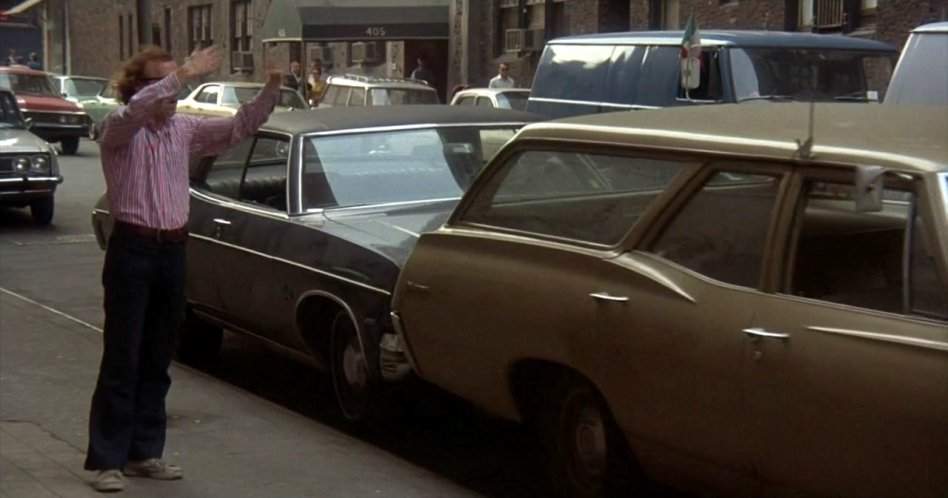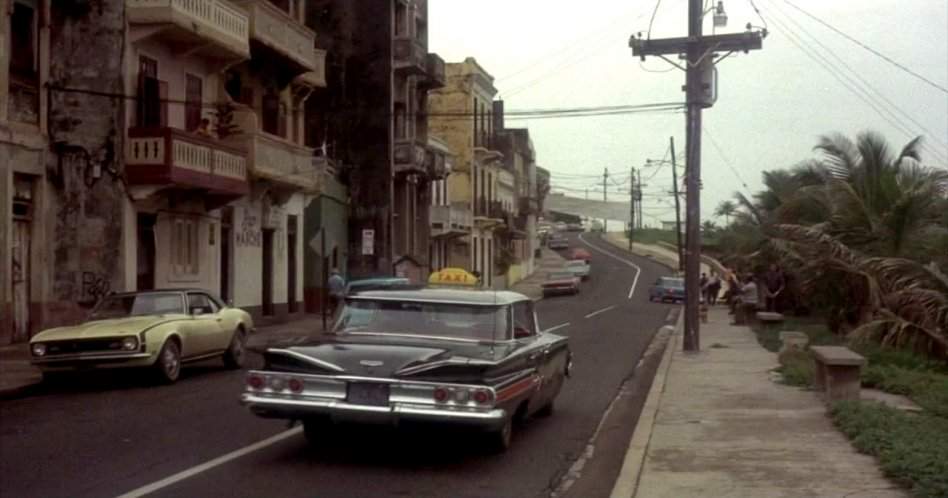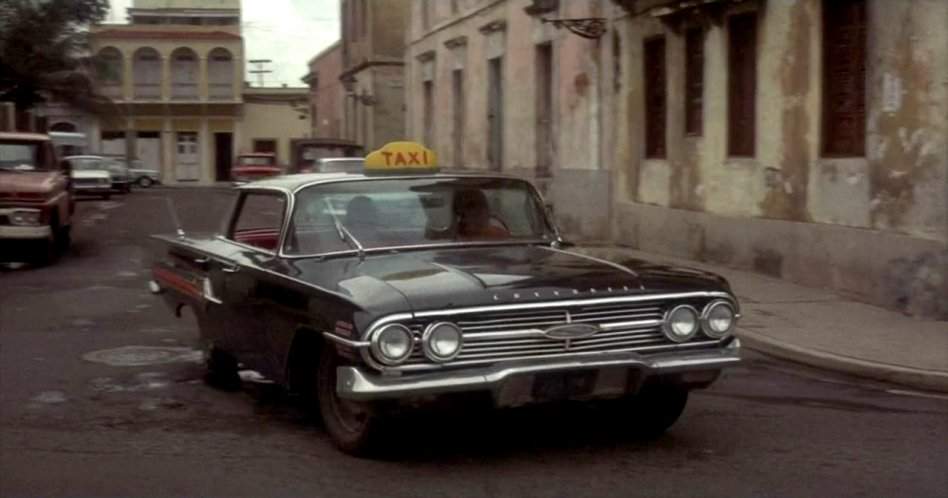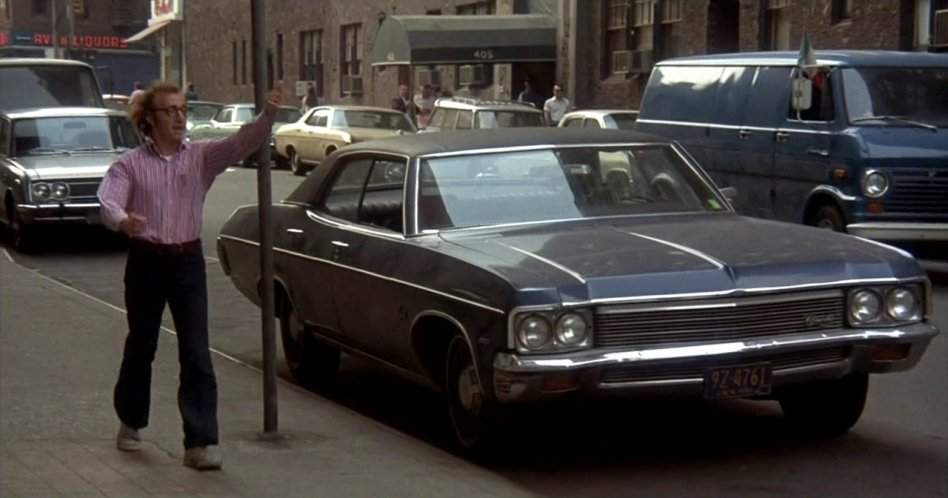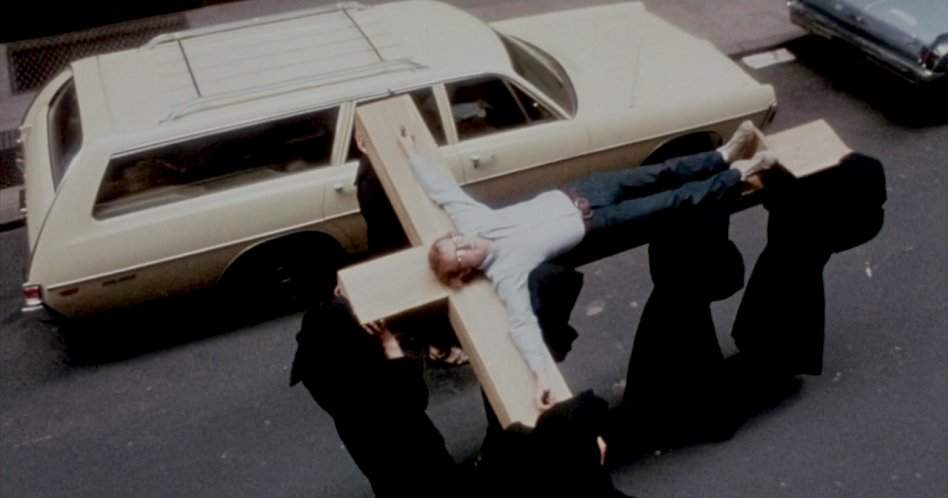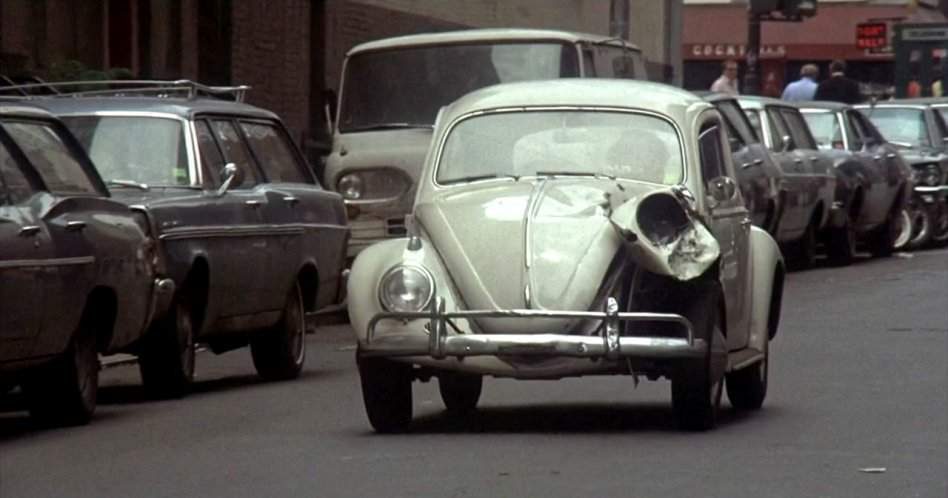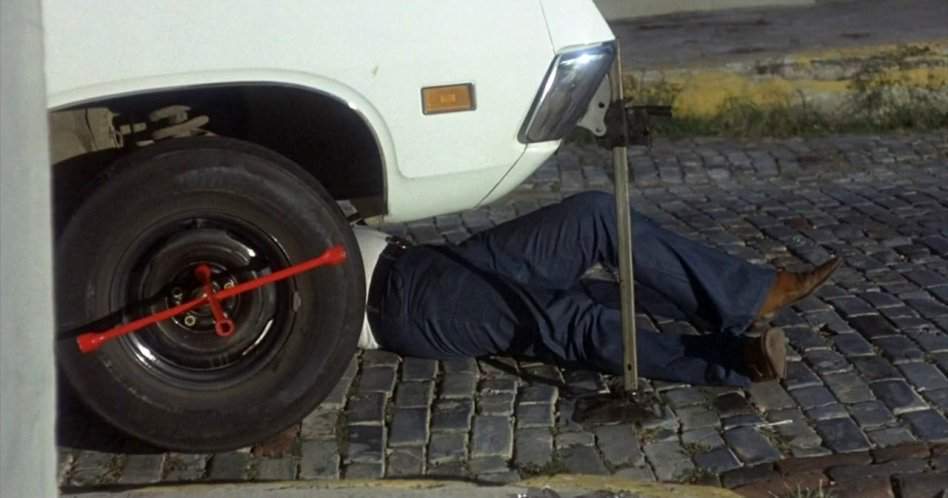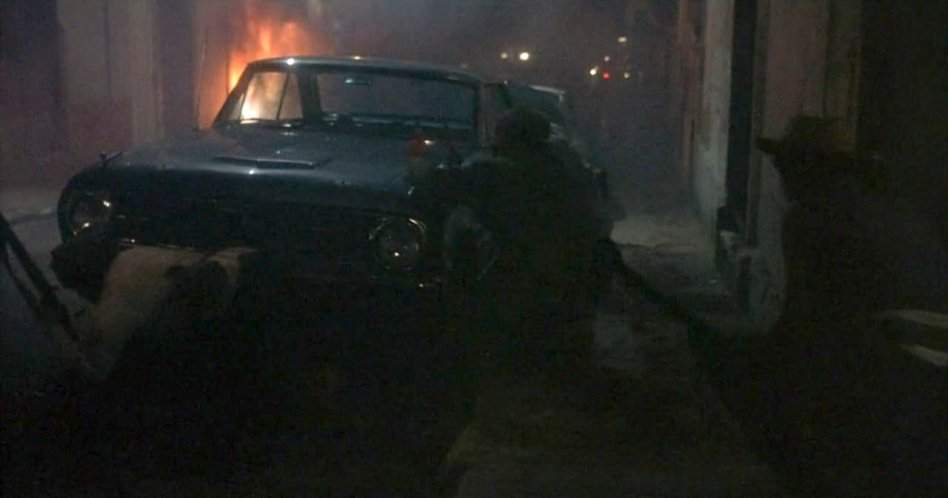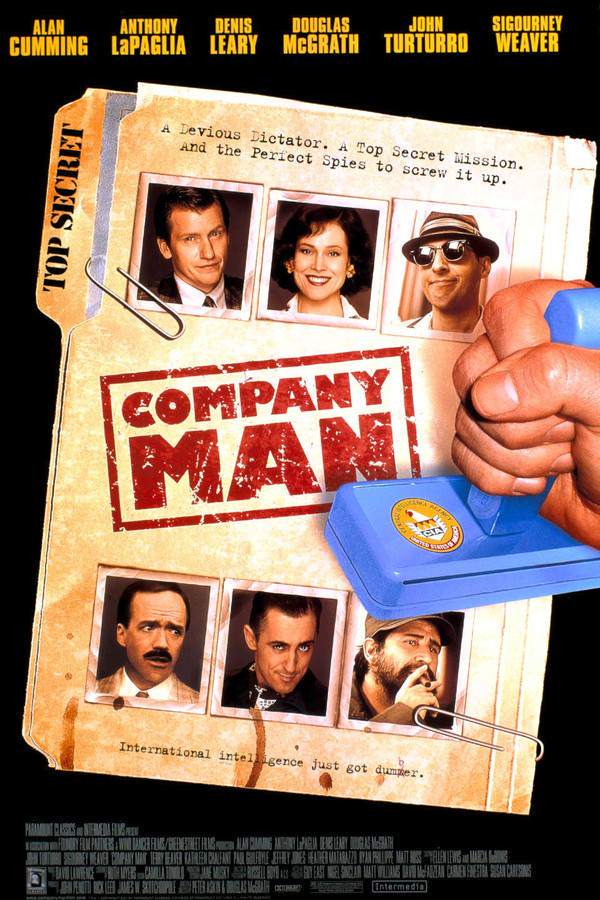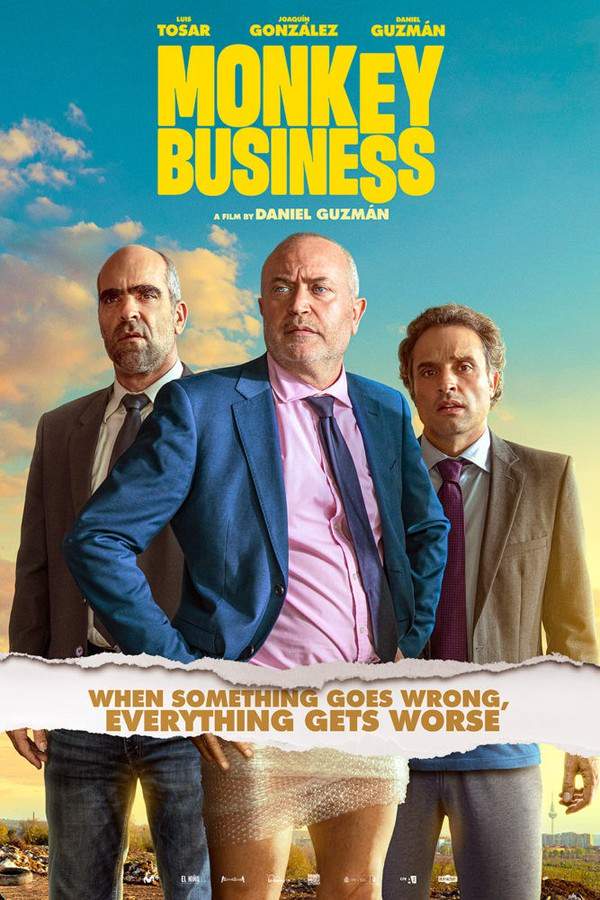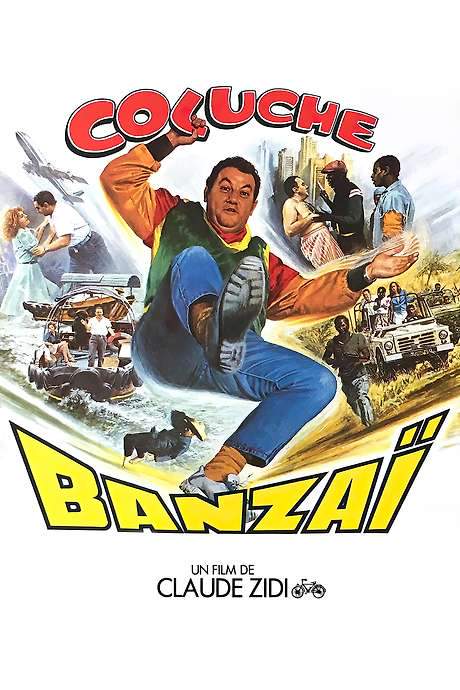Bananas 1971

In this early Woody Allen comedy, hapless product tester Fielding Mellish finds himself embroiled in the bizarre political landscape of San Marcos. While trying to win the affection of Nancy, a captivating social activist, he inadvertently becomes a figurehead in a revolution. Fielding's misadventures lead to unexpected leadership roles and a journey of hilarious self-discovery as he navigates love, cultural clashes, and the chaotic events unfolding around him.
Does Bananas have end credit scenes?
No!
Bananas does not have end credit scenes. You can leave when the credits roll.
Meet the Full Cast and Actors of Bananas
Explore the complete cast of Bananas, including both lead and supporting actors. Learn who plays each character, discover their past roles and achievements, and find out what makes this ensemble cast stand out in the world of film and television.
External Links and Streaming Options
Discover where to watch Bananas online, including streaming platforms, rental options, and official sources. Compare reviews, ratings, and in-depth movie information across sites like IMDb, TMDb, Wikipedia or Rotten Tomatoes.
Ratings and Reviews for Bananas
See how Bananas is rated across major platforms like IMDb, Metacritic, and TMDb. Compare audience scores and critic reviews to understand where Bananas stands among top-rated movies in its genre.

67
Metascore
6.8
User Score


83%
TOMATOMETER

74%
User Score

6.9 /10
IMDb Rating

67
%
User Score
Take the Ultimate Bananas Movie Quiz
Challenge your knowledge of Bananas with this fun and interactive movie quiz. Test yourself on key plot points, iconic characters, hidden details, and memorable moments to see how well you really know the film.
Bananas Quiz: Test your knowledge on Woody Allen's film 'Bananas' and its eclectic mix of humor, politics, and romance.
Who are the sportscasters that report on the presidential events in San Marcos?
Don Dunphy and Howard Cosell
Jim Nantz and Al Michaels
Bob Costas and Chris Berman
Peter Jennings and Tom Brokaw
Show hint
Full Plot Summary and Ending Explained for Bananas
Read the complete plot summary of Bananas, including all major events, twists, and the full ending explained in detail. Explore key characters, themes, hidden meanings, and everything you need to understand the story from beginning to end.
On an episode of the Wide World of Sports, American sportscasters Don Dunphy and Howard Cosell deliver shocking news: the president of the island Republic of San Marcos has been assassinated and replaced by the ruthless dictator, General Emilio M. Vargas (Carlos Montalbán). In the bustling streets of New York City, we meet the hapless Fielding Mellish, portrayed by Woody Allen. Fielding, a disheartened product researcher at General Equipment, tests bizarre inventions such as electrically heated toilet seats and the “Execusizer,” a fitness device cleverly integrated into office furniture for busy executives. Despite his comical antics, Fielding feels unfulfilled and attributes his misfortunes to not having completed his college education.
Fielding’s loneliness ends unexpectedly when Nancy, a passionate college activist portrayed by Louise Lasser, knocks on his door seeking signatures for a petition that advocates American support for the San Marcos revolutionaries fighting against their corrupt new leader. While Nancy juggles her commitments to political activism and yoga, Fielding persuades her to go out with him. Their time together leads to political rallies and even passionate nights, filling Fielding with newfound joy. Yet, his happiness is short-lived when Nancy confesses during an emotional breakup that she yearns for a partner who embodies leadership, awareness, and maturity. Feeling defeated, Fielding makes the impulsive choice to leave his old life behind and travel to San Marcos, the destination he and Nancy had once envisioned visiting together.
Before his departure, he shares the news of his trip with his parents, who are in the midst of a surgical operation. His father, a surgeon disappointed that Fielding isn’t pursuing a similarly distinguished career, urges him to embrace his potential, while his mother offers her unconditional support. Upon arriving in the impoverished San Marcos, where citizens are forced to pay the weight of manure to the tyrant Vargas, Fielding quickly finds himself in a perilous situation. After an awkward dinner with Vargas, where Fielding awkwardly attempts to reason with the dictator, he narrowly escapes an assassination plot orchestrated by Vargas’ henchmen, only to be captured by the true rebels who seek his aid.
Amidst the chaos of revolution, Fielding is thrust into a world of gunfire, warfare training, and unexpected raids—all while believing that taking risks is a “tremendous drawback” to his sex life. He trains with the rebels, acquires knowledge on survival, and even orchestrates a food raid to feed his comrades. As the plot thickens, the rebels desperately attempt to kidnap the British ambassador, leading to a series of unfortunate events where Fielding’s clumsiness turns an operation into comedic chaos, all while evading Vargas’ soldiers.
As Vargas teams up with various factions, his regime crumbles, forcing him to flee to Miami. The rebels rejoice, but their victory is bittersweet; chaos ensues as Esposito, the new ruler, begins implementing absurd laws. It soon becomes clear that the power has taken a toll on him. Fielding, reluctantly assuming the role of president, quickly realizes that their newly-acquired status is threatened by global perceptions of them as either Communist insurgents or American lackeys. Faced with relentless challenges, Fielding’s advisers push him to travel to the United States for support, even as he acknowledges his modest background as a mere product tester.
Donning a disguise, Fielding bravely ventures back home, where he’s met with fanfare and confusion, as his interpreter hilariously misrepresents his English statements. During a fundraiser, he attempts to make a light joke about a farmer’s scandalous life but quickly realizes the inappropriateness of his audience. In a twist of fate, he reunites with Nancy, who remains blissfully unaware of his true identity until a passionate encounter reveals the truth, leading her to reconsider their relationship.
As Fielding becomes embroiled in legal trouble, the authorities label him a subversive. His trial sees a parade of bizarre testimonies, including one from J. Edgar Hoover himself, humorously trying to conceal his identity. Although he struggles as his own lawyer, Fielding’s comic misadventures garner sympathy from some, leading to a lighthearted yet serious outcome: he remains free under the condition that he avoid the judge’s neighborhood.
In a charming conclusion, Fielding proposes to Nancy, and their wedding night becomes the subject of hilarious coverage by Dunphy and Cosell, who provide commentary as the couple celebrates their union.
Fielding’s journey through love, politics, and the absurdity of life captures a comedic yet poignant narrative filled with the highs and lows that make for a classic story wrapped in humor, love, and existential questions about identity and purpose.
Uncover the Details: Timeline, Characters, Themes, and Beyond!

Coming soon on iOS and Android
The Plot Explained Mobile App
From blockbusters to hidden gems — dive into movie stories anytime, anywhere. Save your favorites, discover plots faster, and never miss a twist again.
Sign up to be the first to know when we launch. Your email stays private — always.
Watch Trailers, Clips & Behind-the-Scenes for Bananas
Watch official trailers, exclusive clips, cast interviews, and behind-the-scenes footage from Bananas. Dive deeper into the making of the film, its standout moments, and key production insights.
Cars Featured in Bananas
Explore all cars featured in Bananas, including their makes, models, scenes they appear in, and their significance to the plot. A must-read for car enthusiasts and movie buffs alike.
Bananas Themes and Keywords
Discover the central themes, ideas, and keywords that define the movie’s story, tone, and message. Analyze the film’s deeper meanings, genre influences, and recurring concepts.
Bananas Other Names and Titles
Explore the various alternative titles, translations, and other names used for Bananas across different regions and languages. Understand how the film is marketed and recognized worldwide.
Similar Movies To Bananas You Should Know About
Browse a curated list of movies similar in genre, tone, characters, or story structure. Discover new titles like the one you're watching, perfect for fans of related plots, vibes, or cinematic styles.
Quick Links: Summary, Cast, Ratings, More

What's After the Movie?
Not sure whether to stay after the credits? Find out!
Explore Our Movie Platform
New Movie Releases (2026)
Famous Movie Actors
Top Film Production Studios
Movie Plot Summaries & Endings
Major Movie Awards & Winners
Best Concert Films & Music Documentaries
Movie Collections and Curated Lists
© 2026 What's After the Movie. All rights reserved.















